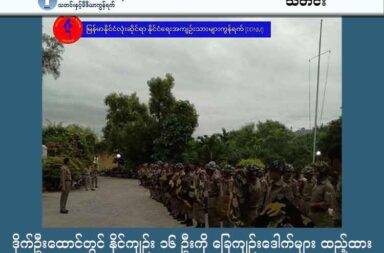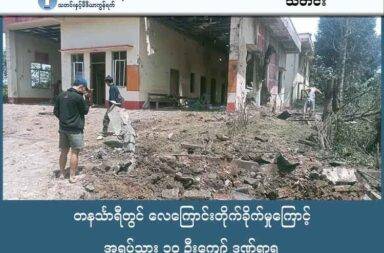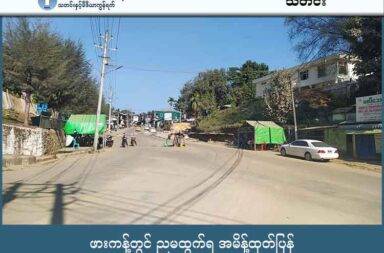Attacks on Cattle Trucks in Shan State Indicative of Greater Political Problems, Locals Say
Lack of rule of law, weak security, and ongoing armed conflict are to blame, political reps say.
By NETWORK MEDIA GROUP (NMG)
Friday, August 16, 2019
Frequent attacks on trucks carrying cattle in northern Shan State have yielded no arrests, leading locals to say that laws are not enforced in the region.
An unidentified armed group shot at cattle trucks passing through Hsipaw and Kyaukme townships on August 12 and 13, respectively. The shootings occur on the highway running from Mandalay to Muse, on the China border. According to locals, three people were killed in the attacks and others were critically injured.
The most recent attack, on Tuesday, occurred near Kho Hmong village in Kyaukme Township. Two men were killed—one at the scene and one on the way to the hospital.
The attack on Monday in Hsipaw occurred between San Loung and Kong Hmong villages. One person was killed and another injured.
Kyaukme parliamentarian Sai Tun Win said that he believes the attacks are politically motivated. He pointed out that many armed groups are active in the area: the Shan State Progress Party moves between Lashio and Hsipaw, the Restoration Council of Shan State and the Ta’ang National Liberation Army move between Kyaukme and Nawng Khio. He also added that there are gunmen who wear civilian clothing patrolling the road, including troops from the Burma Army.
“How do we know who to accuse [of carrying out the attacks]?” he said. “Cattle cars are frequently attacked in northern Shan State. Nobody has yet to discover the truth. I don’t think the rule of law is effective in the area.”
No arrests have been made in these shootings, Ta’ang National Party chairperson for the Lashio office Kyaw Aung told NMG.
“It shows there is an ineffective rule of law in this area… Overall, there is a lack of protection and no security in northern Shan State. The security situation is very weak,” he said.
Kyaukme MP Sai Tun Win feels that if armed conflict remains unresolved, this situation will not improve.
“Everything depends on politics. I think if the political problems are not solved, this kind of problem will occur in this area,” he said of the shootings, adding that he was not accusing either the army or the ethnic armed organizations of perpetrating these attacks. “A political agreement can be achieved after a change of the [2008] Constitution. After that, rule of law will follow the political agreement.”


